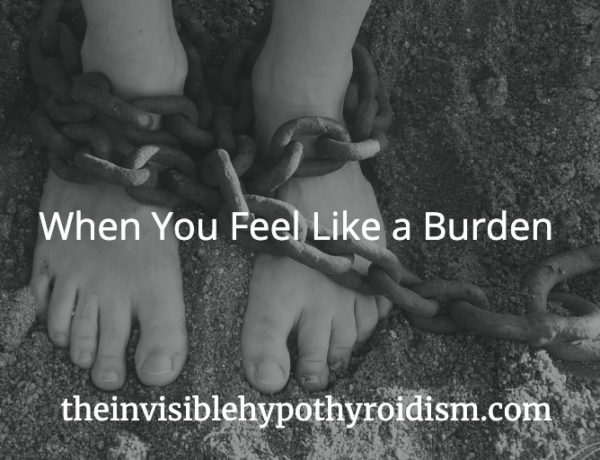Originally published on 2nd August 2018 Last updated on 25th March 2024
Living with hypothyroidism can sometimes affect your work life.
It’s an aspect we often don’t talk about, and in my opinion don’t talk about enough, but there are so many people out there struggling to maintain in employment with thyroid conditions.
I have been one of those people; needing time off work for my physical and mental health due to thyroid disease.
I have needed to make adaptations at work and even learn how to adjust my mindset. These have been important in regards to staying in employment as a thyroid patient.
You can also read my top tips for creating a better work-life balance here!
Adaptations
There are certain adjustments that can make working with thyroid disease easier and I’m going to share what has helped me, although these may differ slightly depending on your line of work. Since being diagnosed with hypothyroidism, I have only worked in office environments as I didn’t get on with more manual jobs and longer, shift hours. (I previously worked in a hotel, care homes for the elderly, retail etc.)
It’s also important to stress here that we are not necessarily doomed to ill health when we have thyroid disease. Many of us do recover a good quality of life, but the below tips can be helpful while we are working on achieving that, experiencing a flare up in thyroid symptoms or otherwise struggling with the management of our thyroid condition. The below tips also help people to keep their thyroid condition under control, since managing stress is a crucial part of our thyroid jigsaw puzzles.
To read more about how I and many other people with hypothyroidism and Hashimoto’s have recovered their health, click here.
Hours
Likely the most important consideration I have learned to take in to account with work are the hours.
I’ve done shift work in the past, working for twelve hours straight, on my feet and without a break or sitting down. This kind of role is going to be a struggle at the best of times for someone with a health condition. It’s a constant test and strain on the body and when you’re living with a chronic health condition, it’s even more so.
Though of course, it really depends on what you can safely manage physically, without worsening your health or preventing it from improving. Different thyroid patients can happily manage different levels of physical activity.
When looking for new jobs and opportunities, I have learned that I do best with 9-5 type hours, definitely not night shifts and definitely not long hours of work. After so long, my brain and body start to switch off, which means I’m not going to be of any use to myself come clocking-off time, let alone to my employer when I can’t think properly to ensure accurate work! (read about thyroid brain fog here)
I have also moved from full-time to part-time work over years (I’m now a mother of two children) which has struck a much better balance with my health and personal life.
Even though I was considered to be very young to be working part-time hours already at 25-years-old, a year or two before I had my first child, I was no longer having to spend weekday evenings and weekends recuperating for the next week of work, now that I had time to not only recuperate from work but also enjoy personal time.
It has struck a much better work-life balance and you’ll need to analyse your own job and possibly hours to work out where you could strike this balance for yourself. After all, work isn’t everything in life and we should ideally be making time for de-stressing, seeing friends and family and enjoying hobbies, too. If at all possible.
Line of Work
As well as your hours of work, looking at your line of work is also important. As I touched on above, if you’re doing something that physically drains you, leaving you no room to improve your health but instead is possibly even worsening it, you should really consider whether a less active or strenuous job would be better suited to your health.
Whilst no one wants to feel like their thyroid condition is ruling their life, by ignoring any signs that your job is actually worsening your health, you could drive yourself in to a worse state, developing other conditions on top of thyroid disease such as adrenal dysfunction.
Environment
Looking at your workspace and environment and considering how you can make it more comfortable can also be beneficial.
I like to keep a hot water bottle and blanket with me at work during the colder months, and I asked to sit away from drafty areas when the layout of our office recently changed.
I also have a BPA and BPS-free water bottle on my desk at all times and keep it filled up, ensuring I stay well-hydrated to keep headaches away, which are so common when working with computer screens all day (and among thyroid patients). I also avoid caffeinated drinks at work as I know these trigger migraines.
It’s important for me to ensure I stay well-hydrated and promote good health even when working.
Some people with a thyroid condition may also benefit from noise cancelling headphones if they find it hard to concentrate, for example from thyroid brain fog, being a HSP or feeling fatigued.
Really look at your work environment and consider even small changes that could help you be more comfortable and make your work life easier when managing hypothyroidism as well. These will differ from person to person, depending on your own symptoms of thyroid disease and work environment.
Stress
Stress levels at work should also be evaluated when you have a thyroid condition. I’m not saying to stop following your dreams of becoming a high-powered lawyer or doctor if that’s what you want, but do consider when stress levels start to become detrimental to your health.
Not addressing these can seriously worsen your health further, especially in the form of adrenal stress. Worsening your health over work is really not worth it, because you won’t be able to work at all if you let it carry on to a point of burn out.
I’ve learned this the hard way and changed jobs a few times until I found a role and environment that created much lower stress levels. It is so reassuring to know that my job isn’t stopping me from getting back to good thyroid health and is preventing it from slipping again.
You also need to be able to switch off from work, guarding some time for yourself in the evenings and weekends (or whenever your non-work days are) for unwinding and enjoying your own time. When you can’t switch off from your role after leaving the office, this is a big warning sign that it’s threatening your health. Not switching off is a threat to your sleep quality and cortisol levels, which, when raised over a prolonged period of time, is a recipe for disaster.
Communication
Having a boss and colleagues who understand your health struggles can make a big difference.
Whether you decide to disclose any of your health conditions to people at work is your decision to make, but I prefer to have clear channels of communication and make those around me aware.
This is beneficial if I’m having a flare, need to go to a medical appointment or move my hours around slightly, as my manager is then understanding. With prior knowledge of my health conditions, he already supports me doing what helps me manage my health effectively, because it means that in the end I am more fit for work, getting more work done and fulfilling the role I am paid to do.
To open up communication on your health condition, you could organise a bake sale or charity event day which provides an opportunity to discuss how it affects you and raise awareness.
Related Article: 5 Things Employers of Thyroid Patients Need To Know
Thyroid disease can touch every part of your life, including your work, but there are things you can do, like those mentioned above, that can help you manage it and create a better work-life balance.
What would you add? Let me know in the comments.

The book Be Your Own Thyroid Advocate: When You’re Sick and Tired of Being Sick and Tired, which builds on this article in detail and covers how to get your health back with a thyroid diagnosis. Reclaim your thyroid healthy life as Rachel has done.





